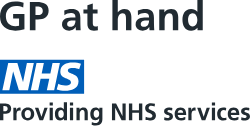Questions about Shared Care Agreements (SCAs)
What is a Shared Care Agreement?
A Shared Care Agreement (SCA) is a formal arrangement between an NHS hospital specialist and a GP, allowing care to be safely shared between both services. It is used when a patient starts a specialist medicine or treatment in hospital that may need ongoing prescriptions or monitoring from their GP.
Before your care is transferred to your GP, the specialist must ensure:
- You are stable on the treatment
- All monitoring and follow-up arrangements are clearly outlined
- Your GP has agreed to take over prescribing and monitoring responsibilities
Shared Care is designed to support safe, joined-up care. Your hospital or specialist remains involved, and they are responsible for providing clear advice and support throughout. Shared care agreements are typically developed for specialist drugs or medications that require ongoing monitoring, such as: ADHD medications, specialist arthritis medications, specialist skin medications, and some specialist drugs with known side effects.
Your GP can only take over shared care if they feel it is safe and appropriate to do so — it is not automatic. The hospital or specialist team must continue prescribing until your GP formally agrees to take over. All Shared Care arrangements in the NHS are voluntary — GPs can decline requests if they do not feel it is safe or manageable.
Can my private specialist arrange Shared Care with my NHS GP?
Shared Care Agreements (SCAs) are generally only established between NHS specialists and NHS GPs. These agreements allow a safe, planned transfer of prescribing and monitoring responsibilities when it is clinically appropriate and agreed by all parties.
Shared Care is not normally available for private patients. If you are under the care of a private consultant, they remain fully responsible for:
- Prescribing your medication
- Providing any required monitoring or tests
- Managing your ongoing care
If you are currently receiving prescriptions from a private provider and do not have an agreed shared care arrangement in place with us, you will need to continue obtaining your prescription from your private service provider. Unfortunately, we will not be able to take over these prescriptions.
NHS GPs are not obligated to take over prescribing initiated privately, nor arrange monitoring for medication prescribed privately. This is supported by national guidance from the British Medical Association (BMA), which states that GPs are not expected to enter into shared care arrangements with private providers due to issues of governance, clinical responsibility, and potential health inequalities.
Why not? It’s about safe and equitable NHS care
The NHS Constitution promotes equitable care, meaning access to NHS services should be fair and based on clinical need — not ability to pay. Offering shared care support to private patients risks creating unfair advantages and undermines this principle.
Unless your private provider is delivering a commissioned NHS service (for example via a Right to Choose pathway), they cannot usually enter into shared care with your NHS GP. In such cases, allowing private-initiated treatments to be picked up in the NHS without proper governance could compromise clinical safety, governance, and transparency.
What can I do if I want NHS support?
If you want your NHS GP to take over prescribing:
- You will need to be referred to an NHS consultant for review and approval of the treatment.
- If the NHS consultant agrees, they may initiate a formal Shared Care Agreement.
- Your GP will then consider whether to accept shared care based on safety, capacity, and clinical suitability.
